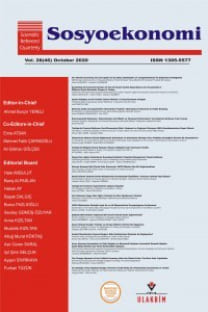Matching with Restricted Preferences
-
Matching with Restricted Preferences
-,
___
- Balinski, M. and T. Sonmez (1999), “A Tale of Two Mechanisms: Student Placement”, Journal of Economic Theory, 84: 73–94.
- Gale, D. and L. Shapley (1962), “College Admissions and the Stability of Marriage,” American Mathematical Monthly, 69: 9–15.
- Roth, A. E. and M. Sotomayar (1990), Two–Sided Matching: A Study in Game–Theoretic Modeling and Analysis, Cambridge, U.K.: Cambridge University Press.
- Roth, A.E. and M. Sotomayor (1992), “Two Sided Matching,” in Handbook of Game Theory with Economic Applications, (eds.) Aumann R. and S. Hart, North Holland: Elsevier, 485–541.
- ISSN: 1305-5577
- Yayın Aralığı: 4
- Başlangıç: 2005
- Yayıncı: Sosyoekonomi Derneği
Kırgızistan'da GSM Operatörleri Müşterilerinin Fiyat Algılamalarına Yönelik Bir Araştırma
Matching with Restricted Preferences
The Correlation between the Social Genders and Reaction to Tax
Siyasal Ahlak Dışı Davranışlara Farklı Bir Çözüm: Anayasal İktisat ve Ahlak Anlayışı
ECO Pazarında Türkiye: 1997-2005 Dönemi Rekabet Gücü Analizi
Çin'de İkili İstihdam Yapısı ve Küresel Etkileri
Borç Yönetiminde Patronaj Sorunu
Haluk EGELİ, Haluk TANDIRCIOĞLU
